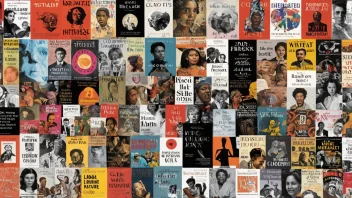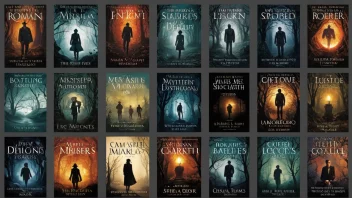In the literary world, the last decade has been marked by a remarkable array of best-selling authors who have not only topped charts but also influenced generations of readers. Their works span a variety of genres and themes, resonating with audiences and sparking important conversations. This article delves into some of the most impactful best-selling authors of the past ten years, exploring their key themes, writing styles, and the cultural significance of their contributions.
A prominent figure in contemporary literature is Chimamanda Ngozi Adichie, whose novels such as 'Americanah' and 'Half of a Yellow Sun' have garnered international acclaim. Adichie’s powerful storytelling and exploration of identity, race, and feminism position her as a vital voice in modern literature. Her ability to blend personal narratives with broader social issues allows readers to engage with complex themes in a relatable manner, making her work essential reading for understanding contemporary society.
Another notable author is Rick Riordan, best known for his 'Percy Jackson & the Olympians' series. Riordan has not only entertained young readers with his engaging blend of mythology and adventure but has also addressed themes of friendship, courage, and self-discovery. His works have reinvigorated interest in mythology for a younger audience, fostering a love for literature and learning that extends beyond the pages of his books.
In the realm of psychological thrillers, Tana French has made her mark with her Dublin Murder Squad series. French’s intricate plots and deep character development have captivated readers and critics alike. Her ability to weave mystery with profound psychological insights explores themes of morality and human nature, making her novels both thrilling and thought-provoking. French's work has elevated the genre, bringing a literary richness that resonates with fans of both mystery and literary fiction.
On the non-fiction front, Yuval Noah Harari has gained widespread recognition with his bestsellers 'Sapiens' and 'Homo Deus.' Harari's interdisciplinary approach to history and philosophy engages readers in discussions about the evolution of humanity and our future. His ability to distill complex concepts into accessible narratives has made him a significant figure in popular science writing, encouraging readers to think critically about the world around them.
Finally, we cannot overlook the impact of authors like E.L. James, whose 'Fifty Shades of Grey' series ignited a global phenomenon in erotic romance. While her writing style received mixed reviews, the cultural impact of her work is undeniable. The series opened up conversations about sexuality and desire, challenging societal norms and prompting a reevaluation of romantic narratives in literature.
In conclusion, the best-selling authors of the last decade have not only achieved commercial success but have also played a significant role in shaping literary culture. Their ability to tackle pressing social issues, engage readers with diverse narratives, and inspire critical thought underscores the importance of literature in our lives. As we look ahead, the continued exploration of various themes by emerging and established voices will undoubtedly enrich the literary landscape, making it an exciting time for readers and writers alike.
Bestselling Authors Who Shaped a Generation
Explore the influential best-selling authors of the past decade and their impact on literature and society.






